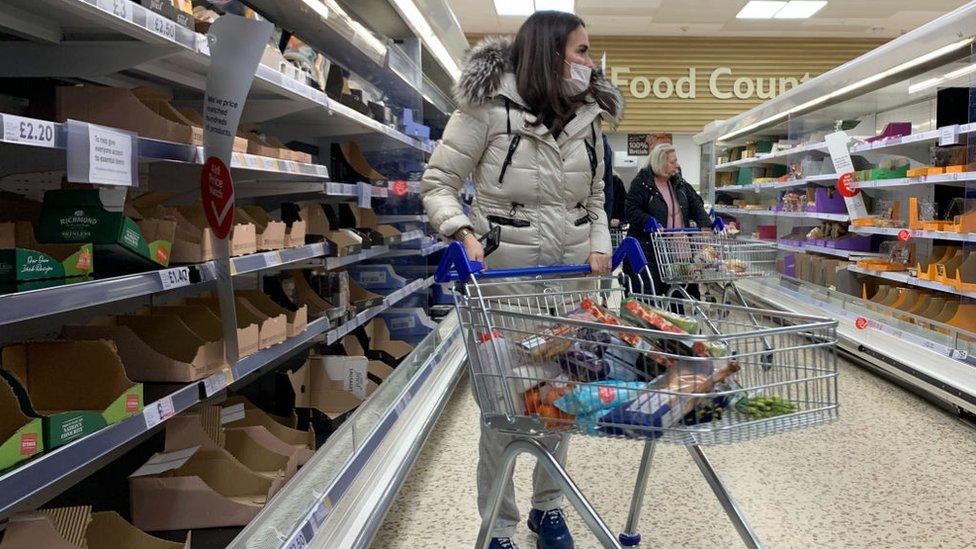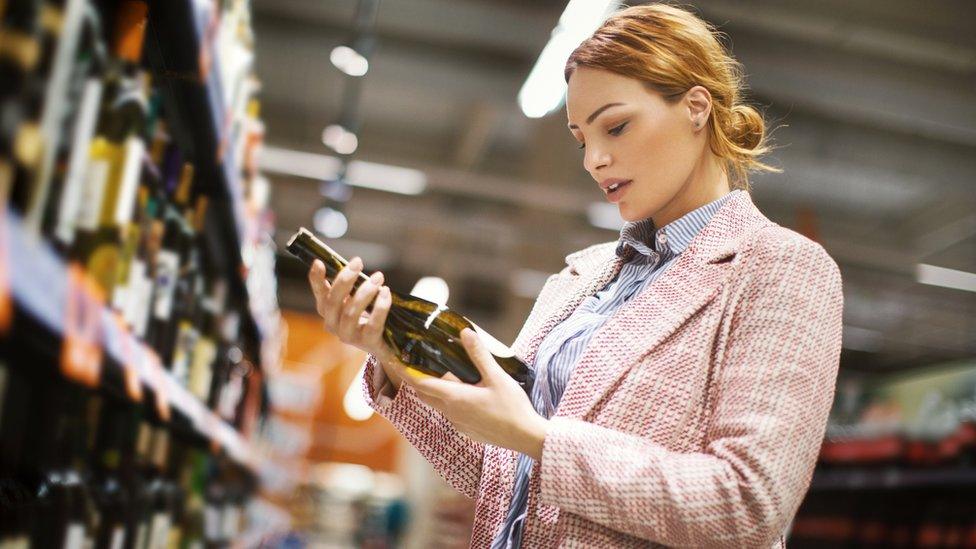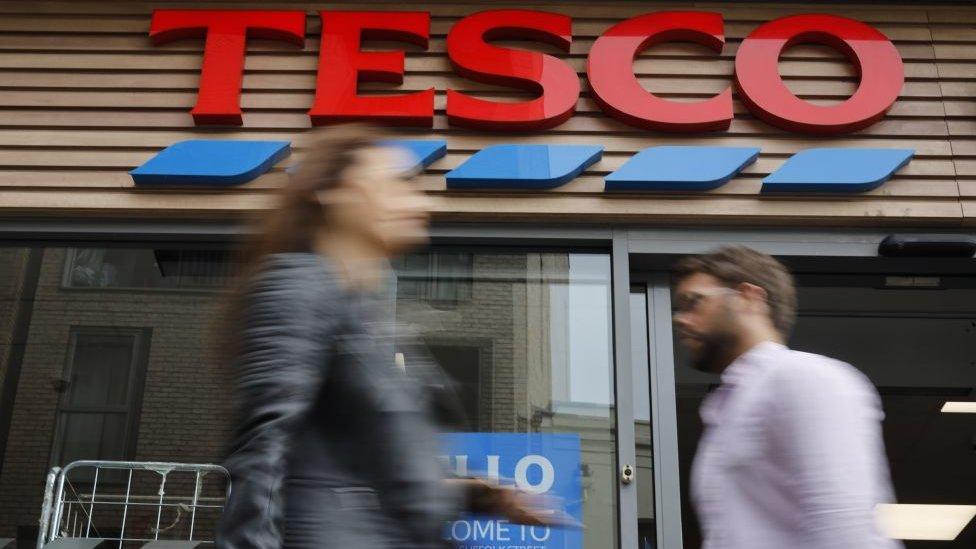Coronavirus: The weekly shop is back in fashion, says Tesco boss
- Published
- comments
Tesco online deliveries to double in a month
People have reverted to shopping the way they did a decade ago by making one big weekly trip to the supermarket, according to the boss of Tesco.
Chief executive Dave Lewis said Covid-19 social distancing measures mean consumers are shopping less frequently.
He said that the number of transactions in April nearly halved, but the size of the average basket had doubled.
Mr Lewis added Tesco has now broken through the one million online delivery slots a week for the first time.
He expects the supermarket will add a further 200,000 slots over the next ten days, in particular from vulnerable customers.
Tesco has achieved an increase in online capacity of 103% in the space of a few weeks, growth which would normally take years to achieve. The other supermarkets have also ramped up delivery slots. Before the crisis, only about 7% of all groceries were bought online.
"We're trying to help as many people as we can. And the single biggest thing has been the change in online shopping," he said.
"The issue that we have is that when the government talks about vulnerable customers, it has very specific guidelines and they had about 400,000 that they wanted the retail industry to help. They gave us 350,000 of those names and we got to 260,000.
"We will want to do more, but there's still more demand than we're able to supply," Mr Lewis said.
The Tesco boss's comments about the weekly shop were backed up by data from retail consultant Kantar, which said households made a "record low" number of trips to the supermarket in the 12 weeks to 19 April.
However, average basket sizes had "hit their highest levels ever", it added.
"Grocery sales were £524m higher in the past four weeks than they were in April 2019, as British consumers adapted to life under lockdown," Kantar said. Online sales now account for 10.2% of the grocery market.
"On average, households shopped only 14 times for groceries over the past month, a record low and down from 17 in more normal times," Kantar said.
"A drop in frequency was matched by a corresponding uplift in the amount spent on each trip to £26.02 - easily the highest figure ever recorded by Kantar and £7 greater than last year."
Tesco remains the UK's biggest supermarket, with a 26.8% share of the market, with shoppers spending 7.2% more than in the same period last year.
Other supermarkets saw even bigger rises in spending, with the Co-op up 20% and online-only Ocado rising 19.4%.
'Flour shortage'
In his first broadcast interview since the outbreak of coronavirus, Mr Lewis spoke about how Britain's biggest retailer had adapted and how shopping habits have changed during lockdown.
"People are shopping once a week, a little like they did 10 or 15 years ago, rather than two, three or four times a week that was happening before the crisis." He added that during the surge in panic buying - when customers stripped supermarket shelves of goods like liquid soap, toilet roll and pasta - Tesco "had seen seven weeks of sales going in one or two days".
"The food supply chain is now back in good shape," he believes. Flour, though, is still in short supply.

Tesco is asking those who can come into store to do so
Mr Lewis described the last six weeks as "incredible" adding that "just about everything in the business had changed". For instance, Tesco has taken on 45, 000 temporary workers to help cover for the 51,000 staff who were absent because of Covid-19 and cope with the increase in online deliveries.
Mr Lewis said the company, the UK's biggest private sector employer with more than 300,000 workers, is now in the process of welcoming back staff who have been away while those temporary hires leave. "We still have probably 35,000 to 40,000 double cover at the moment," he said.
"I think what was really quite humbling was the willingness of people to come and work in a supermarket and help us feed the nation. We've had some very interesting new colleagues - from BA pilots, West End theatre, to racing drivers... and we've trained them all very quickly".
The priority is to keep his staff and shoppers safe. "I've been really quite amazed how well 99% of our customers have adapted to the changes in stores, " he said. "But we have to recognise that until the advice of the government changes, then we need to maintain social distance. So, we will, for the foreseeable future have to keep those measures in place."
The challenge will be keeping the discipline in smaller stores, especially in city centres, when people return to work.
Mr Lewis was asked about the impact of coronavirus on retail and High Streets more broadly. He said a lot depended on how customers behave once the crisis is over but he hoped it would encourage the country to think about its future food strategy.
"I think the food chain has done really very well. Two weeks after such a big demand spike everything did recover, so there is resilience.
"I think what this crisis has shown is the importance of food retail. I think in the past, perhaps, a little bit we may have taken that for granted. So I hope that as a nation, we'll think carefully about food, food strategy and distribution."
- Published24 April 2020

- Published8 April 2020
